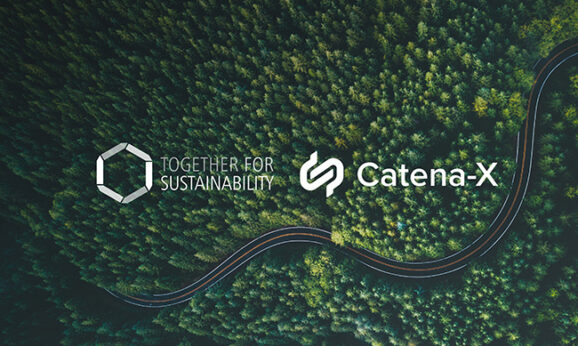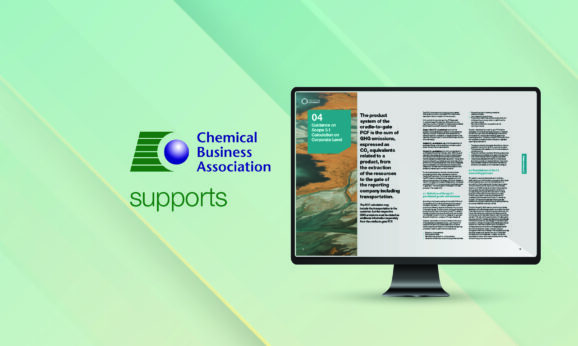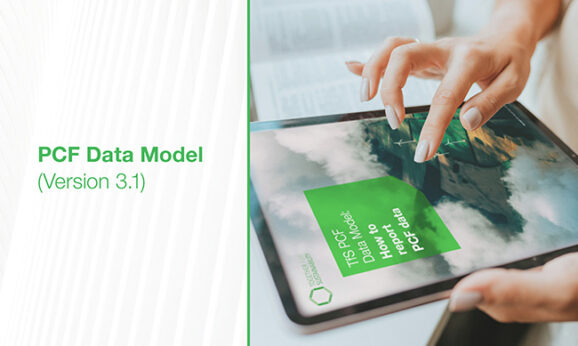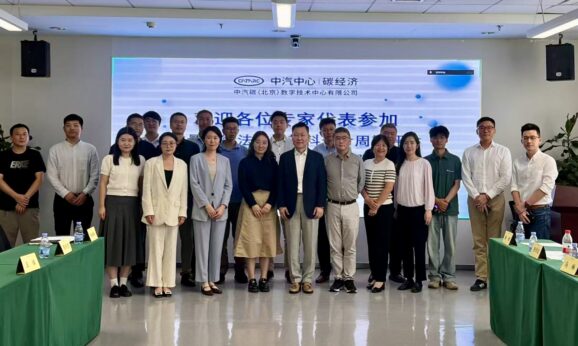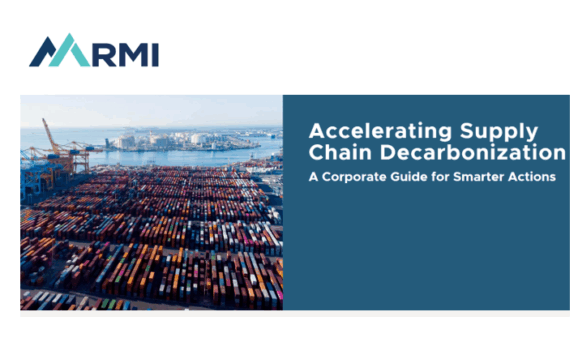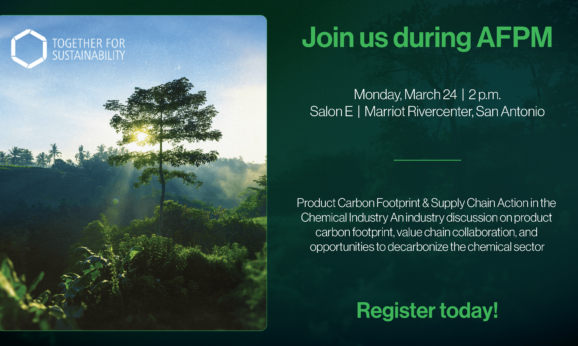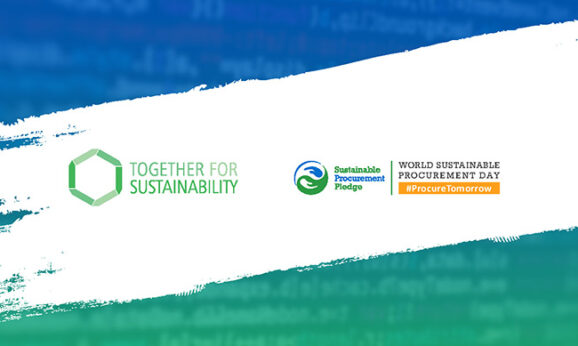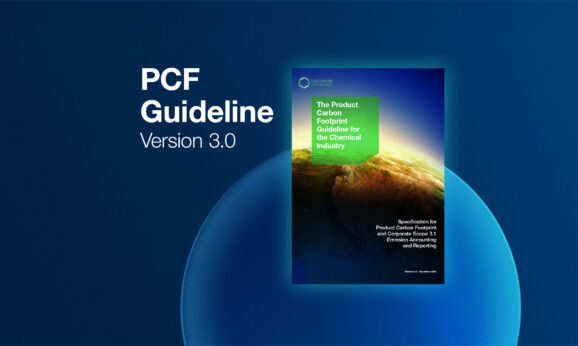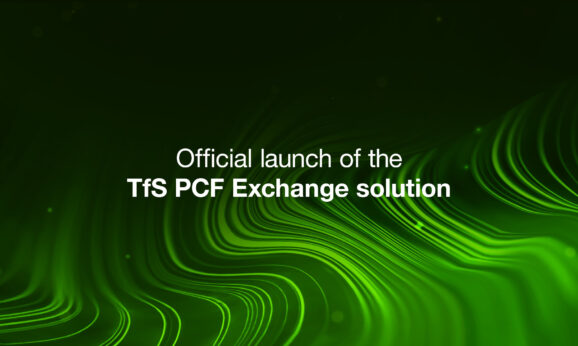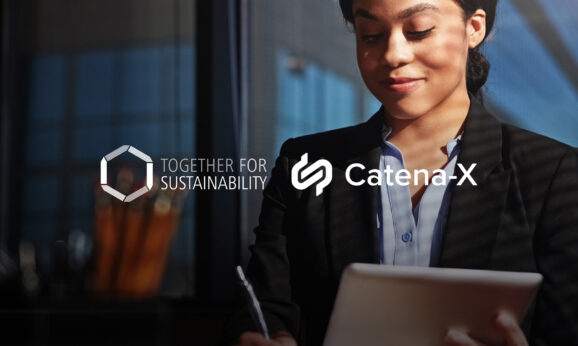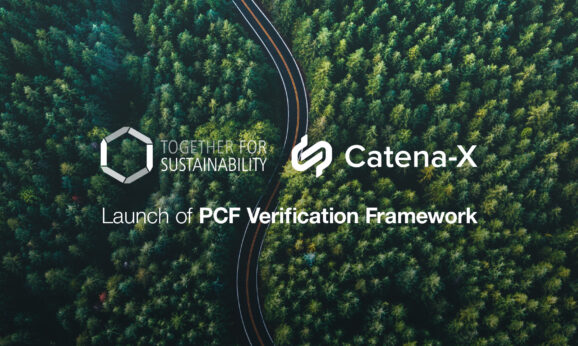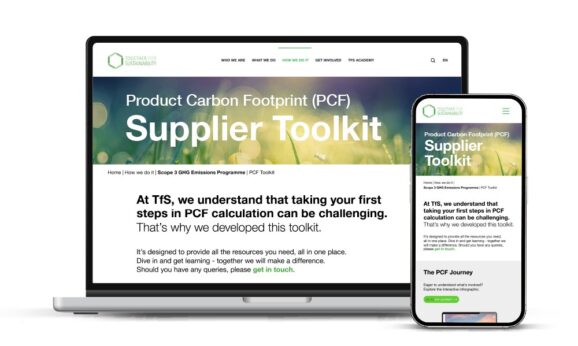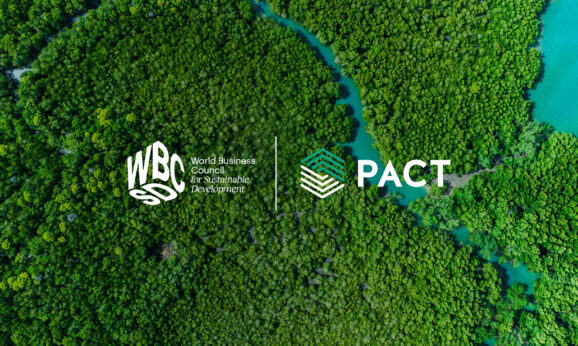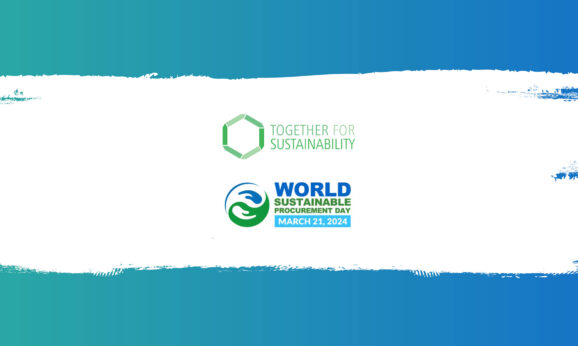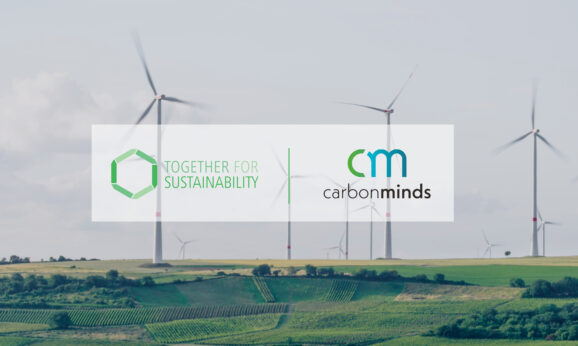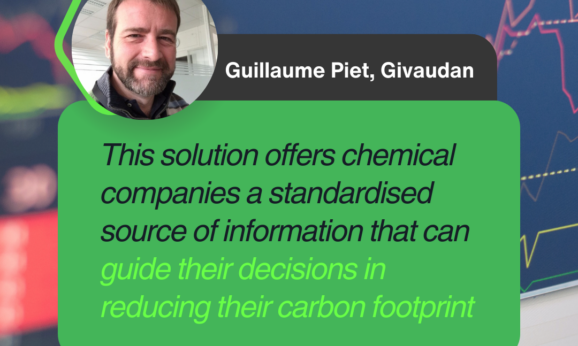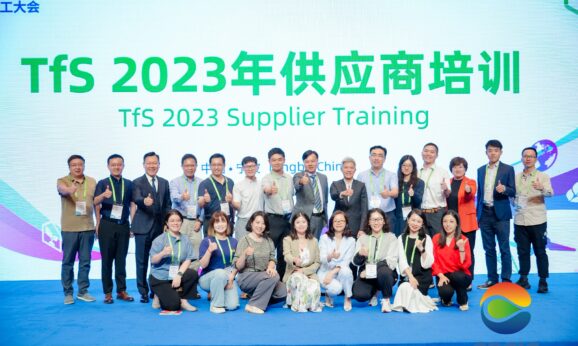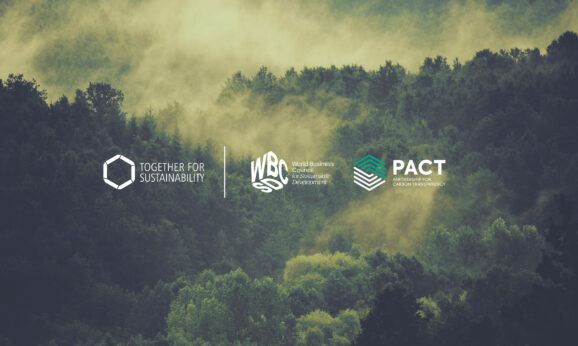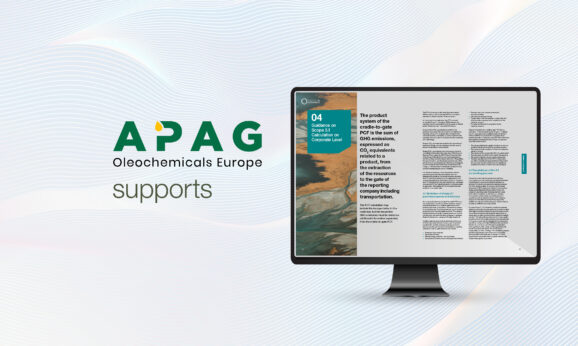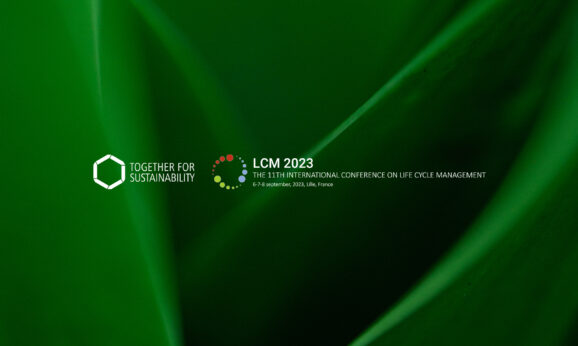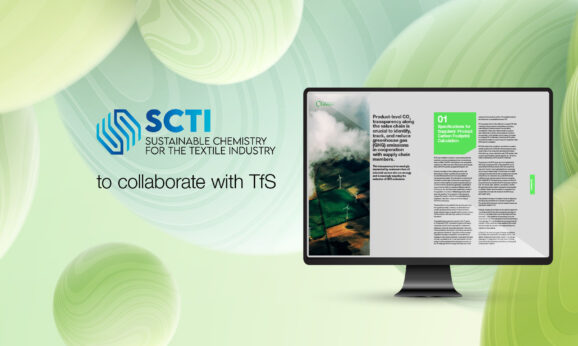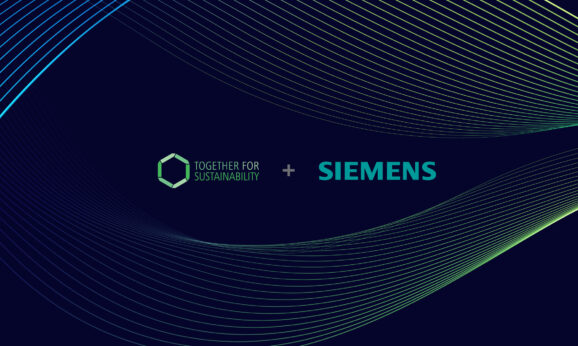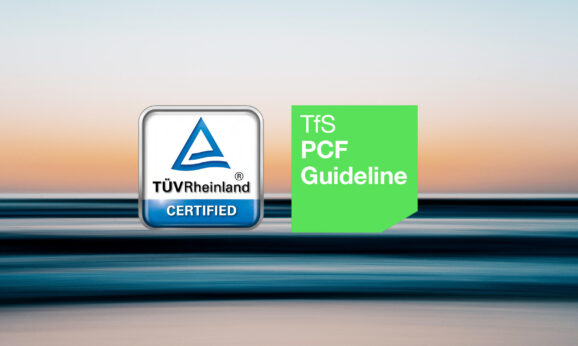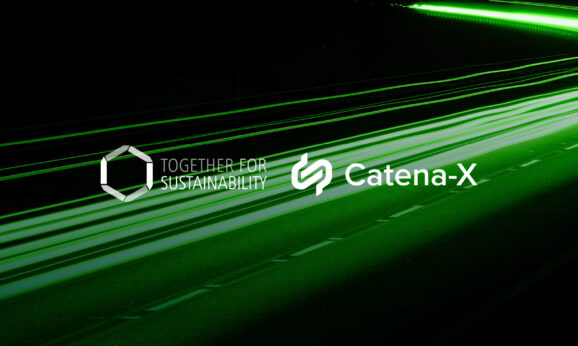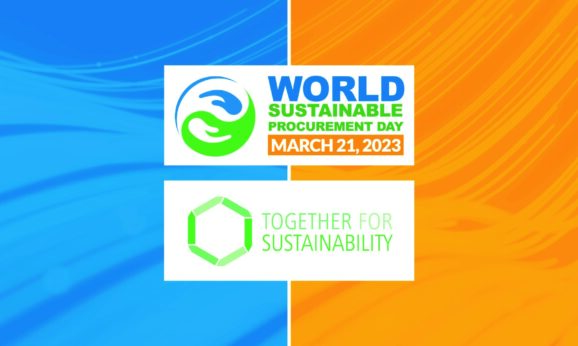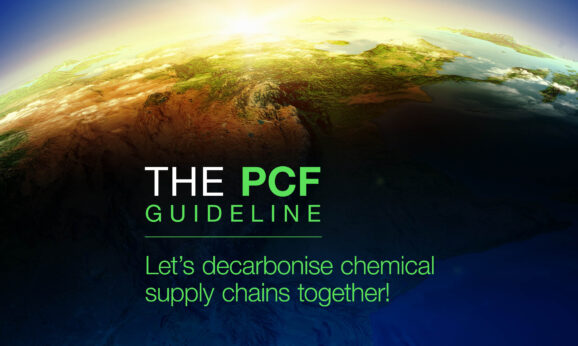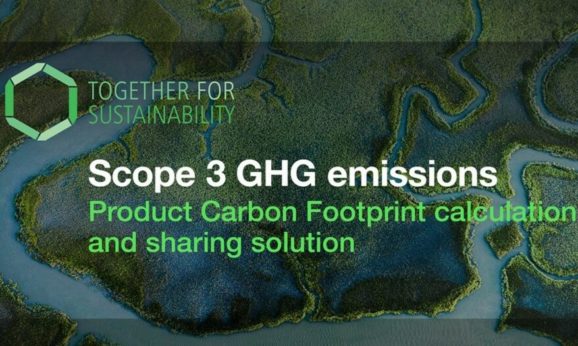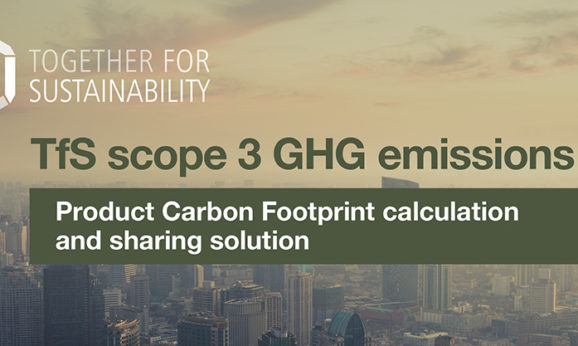Catalysing change in carbon accounting
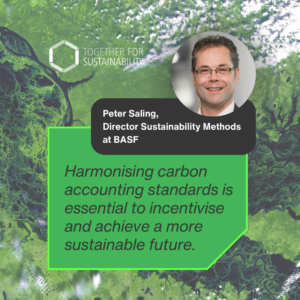
Peter Saling, Director Sustainability Methods at BASF and Co-Chair of the TfS Scope 3 GHG emissions programme, discusses the findings of TfS’ White Paper: Improving and harmonising Scope 3 reporting.
The chemical industry provides essential services to a multitude of sectors, ranging from petrochemicals to packaging, and therefore plays a crucial role in combatting climate change. However, it faces a significant greenhouse gas (GHG) emissions challenge due to its heavy reliance on carbon-intensive fossil materials. That is why Together for Sustainability (TfS) launched the Scope 3 GHG emissions programme, helping to drive decarbonisation across the sector. As part of this, TfS launched the Product Carbon Footprint (PCF) Guideline, a collaborative textbook to promote transparency and harmonisation when calculating emissions in chemical supply chains, helping chemical companies understand their climate impact and find ways to reduce them.
During this work, TfS identified potential improvements in the field of corporate greenhouse gas accounting that are captured and explained in its White Paper, Improving and harmonising Scope 3 reporting.
Re-evaluating carbon accounting standards
Transitioning from fossil fuel-based energy sources to renewables is one element. But to effectively decarbonise the chemical sector, we must go beyond conventional energy replacement strategies and explore innovative approaches while incentivising chemical companies and other industries to invest in and adopt these solutions. One of the primary challenges is the need to recalibrate carbon accounting methodologies to accurately measure and report progress.
TfS has identified three key areas necessary to address this issue for the chemical sector: biogenic carbon accounting, mass balance (MB) accounting and accounting for recycled materials and content.
Biogenic carbon accounting
Biogenic carbon refers to carbon derived from renewable sources, such as plants and biomass. Accounting for biogenic carbon is crucial because it differs fundamentally from carbon derived from fossil fuels. However, companies often face challenges in accounting for products containing biogenic carbon, as it is not adequately acknowledged in carbon reporting in the so-called category 3.1 of the GHG Protocol. To address this, TfS recommends the adoption of the -1/+1 approach, which allows companies the meaningful calculation of PCFs by accounting for the carbon dioxide absorbed during biomass growth. This approach offers a more accurate representation of the carbon impact of products and incentivises the use of biogenic carbon in manufacturing processes as well in purchasing decisions.
Mass balance approach
The MB approach integrates various elements, including biomass, recycled materials and energy sources, into the carbon accounting process. This approach allows companies to track the flow of materials and energy throughout their production processes, making it easier to account for the use of renewable resources. By adopting the MB approach, chemical companies can better understand and promote the environmental impact of their products and processes. However, current carbon accounting standards, such as the GHG Protocol, have limitations in accommodating MB accounting. TfS recommends that the GHG Protocol and other standards recognise MB as a valid approach, thus enabling a more comprehensive and accurate assessment of carbon emissions. It addresses scenarios where physically segregating alternative and traditional materials during processing isn’t feasible.
Recycled materials and content
The chemical industry is increasingly incorporating recycled materials into its processes. Mechanical and chemical recycling technologies are gaining prominence, allowing the sector to reduce its reliance on new materials. However, accounting for recycled content in GHG accounting presents its own set of challenges. Current reporting methodologies often struggle to account for the environmental benefits of recycling. As a result, there is a pressing need for a reimagined corporate reporting methodology that accurately assesses the positive impact of recycled materials on carbon emissions.
Sparking a change
Harmonising carbon accounting standards is essential to incentivise and achieve a more sustainable future. By recalibrating carbon accounting methodologies to reflect renewable carbon cycles and emerging technologies, the industry can more accurately measure and report its progress. Through the adoption of the -1/+1 approach for biogenic carbon accounting, the integration of MB accounting and the recognition of recycled materials, the chemical sector can contribute significantly to a greener and more sustainable future.
In a world increasingly concerned with the environmental impact of human activities, recalibrating carbon accounting standards is a crucial next step. The chemical industry, as a building block of the global economy, can play a pivotal role in this transformation, and the findings in TfS’ White Paper hope to catalyse this shift.






